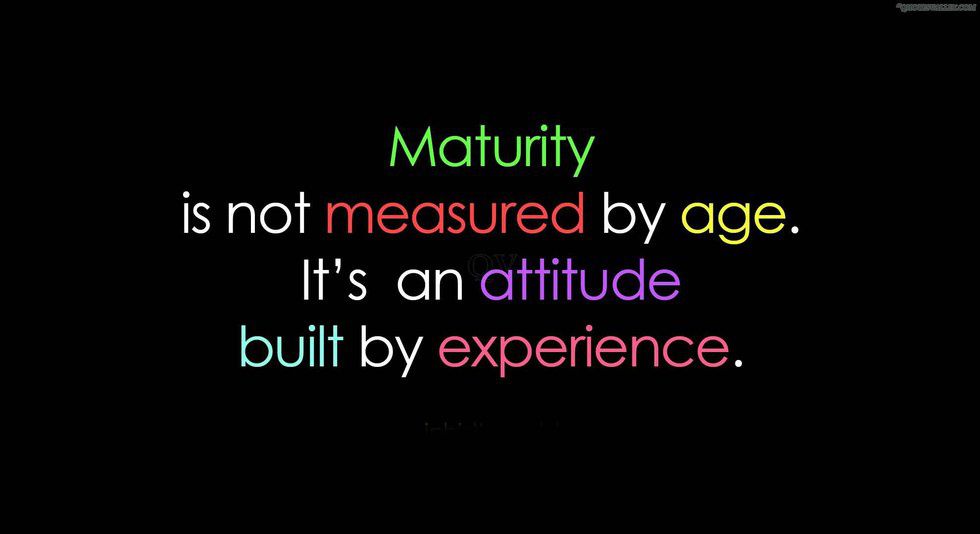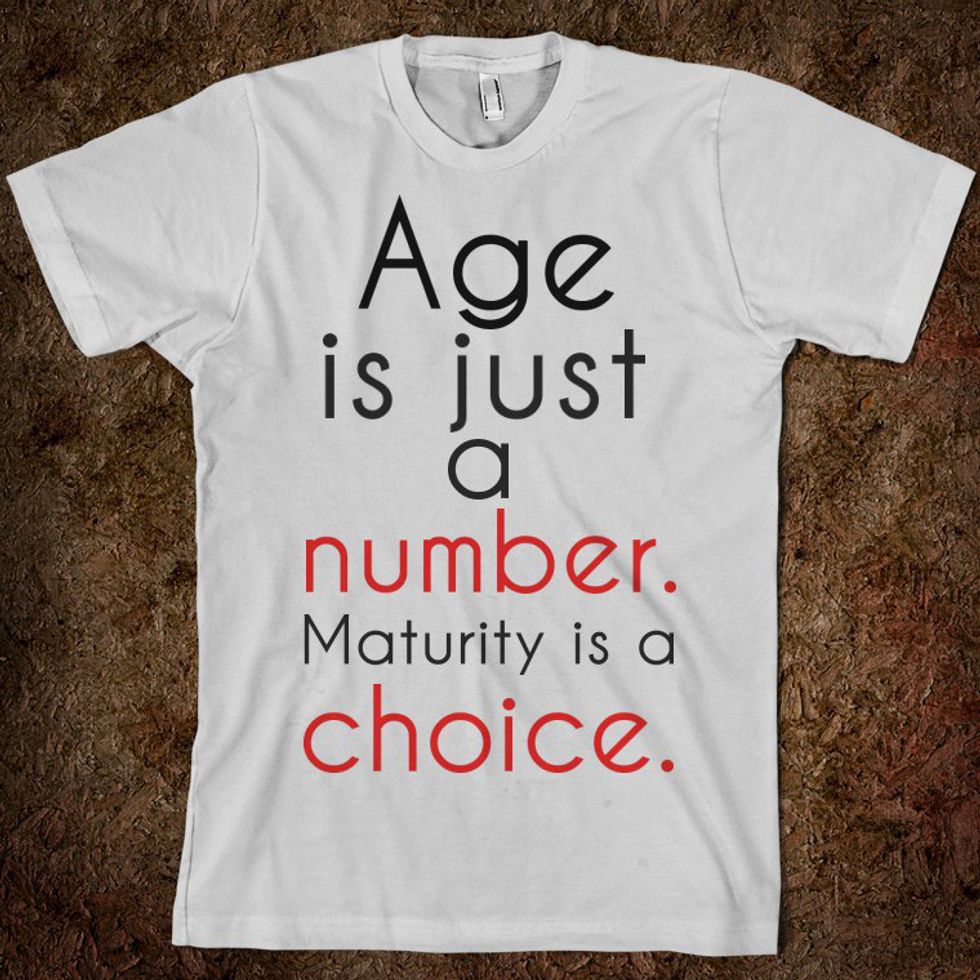Maturity is a word used often to define one’s wisdom in regard to decision making, but is maturity really synonymous with the weight of one’s age? Recently, while listening to the radio on my way home from work there was a commentary regarding the age between two people in a relationship. The woman was 65 and her partner was 45. A twenty year age difference was the concern on this woman’s mind about the appropriateness of her relationship. Many callers voiced their opinions. Some were supportive, others disapproving. However, the most repeated response mentioned the level of maturity of both adults within the relationship. Obviously, as the 65 year old, the woman was deemed more mature and many callers remarked that the woman would have more knowledge to teach her much younger partner. Such a statement is fair to acknowledge as we age. The experiences we garner are stored in our brains within the higher level of cognition storage known as memory which provide us with necessary knowledge in order to aid us in avoiding dangerous situations and from making repeated mistakes. Nonetheless, anyone can attest to witnessing immature actions and decisions being made on the part of much older individuals that have us scratching our heads left questioning their level of maturity.
Despite the awareness of maturity among different ages, people still regard maturity, more often than not, solely based on the age of an individual. Why is that? As a young adult, I have always felt that I exhibited a high level of maturity. Still, if I were to be interviewed for a job up against someone who was 29 years old to my 19 years. More than likely, the job would go to the 29 year old. Sure, a hypothetical scenario and the type of job are worthy of scrutiny, but the fact still remains that our society tends to gauge a person's maturity by their age. This is a fundamental aspect of society, considering age attributes wisdom over time, but when does this wisdom begin to manifest if people often make ridiculous choices while the elderly population, just as much as youths, have plenty to learn and adapt to.
As for the twenty year difference, the matter of these two people’s relationship should be regarded between just those two people. Every relationship is not equal, hence if the age difference works for them then that’s what counts. Obviously, the woman may have more lifetime experience than her partner, still his maturity should not be deduced solely because of his age. The quote, “Maturity begins when drama ends” is a prime representation of the way in which maturity should be acknowledged. As people begin to recognize what matters most in life rather than igniting the flames of unnecessary, insignificant, trivial matters than maturity begins to stretch its wings. With that in mind, age is not the unifying factor of maturity, so let’s not make it the requirement to distinguish an individual’s maturity.






















